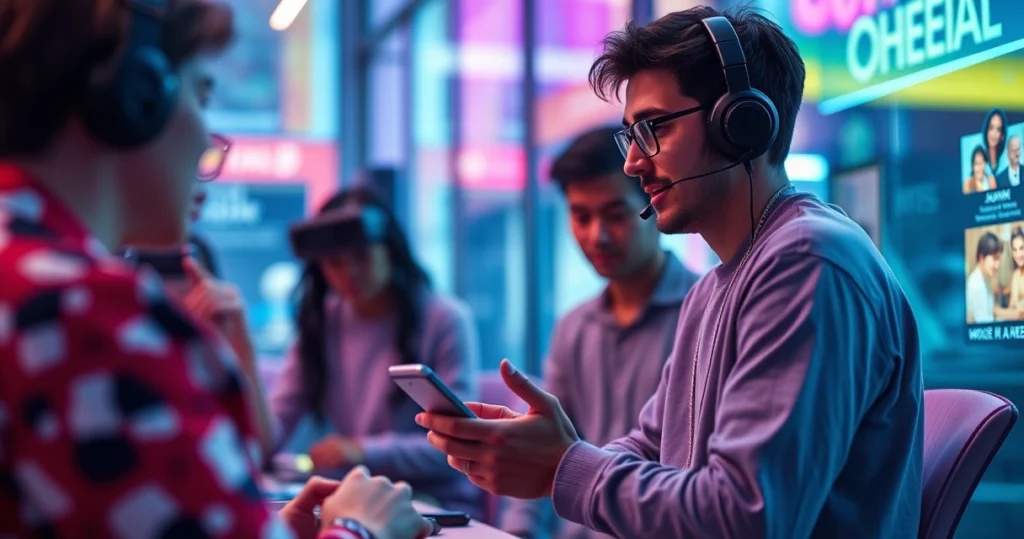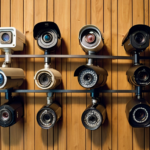Meme Culture in 2025: The Universal Language of Internet Jokes
Imagine scrolling through your social media feed, and you stumble upon a meme that instantly brings a smile to your face. You share it with your friends, and soon enough, it’s sparking laughter across continents. Memes, those seemingly simple images or videos with witty captions, have become an integral part of our daily lives. How often have you found yourself relating more to a meme than to any other form of communication? It’s not just you. In 2025, meme culture has transcended its role as mere internet jokes; it has emerged as a universal language that connects people, regardless of age, location, or language.

Think about the first time a meme resonated with you. It might have been a straightforward joke or a clever commentary on a trending topic. The sense of belonging that it fostered, the shared laughter with fellow viewers, is a testament to its power. Memes reflect our emotions, societal issues, and cultural nuances, distilling complex ideas into relatable moments. They’re no longer just viral memes; they’re a significant part of our cultural dialogue, evolving into a dynamic form of expression used in everything from political discourse to everyday banter.
In our fast-paced digital world, where attention spans are dwindling, memes offer a quick, engaging way to communicate ideas. They’ve become cultural artifacts, preserving the sentiments of our time much like historical texts did in the past. Whether you’re a creator or a consumer, memes offer a peculiar comfort—they remind us we’re not alone in our experiences. As you navigate through this exploration of meme culture in 2025, consider how digital humor trends have shaped your interactions and reflect on the profound impact these seemingly simple creations have on our collective consciousness.
1. The Evolution of Meme Culture
The Early Days of Memes
Memes have come a long way from their humble beginnings. In the early 2000s, memes were predominantly image-based, simple, and often shared on niche internet forums. Think of classics like “Dancing Baby” or “Bad Luck Brian.” These images circulated rapidly, creating shared experiences among internet users.
Memes as Cultural Commentary
As social media platforms like Facebook, Twitter, and Instagram gained popularity, memes evolved into a powerful form of cultural commentary. They began addressing political issues, social justice, and trending news, providing a unique lens through which we could view current events.
Memes in 2025: A Global Phenomenon
Fast forward to 2025, and memes have become a global phenomenon. Thanks to platforms like TikTok and Instagram Reels, video memes have gained prominence. They transcend language barriers, allowing people worldwide to engage with content regardless of their linguistic background.
2. Memes: The New Universal Language
Understanding Memes Across Borders
One of the most remarkable developments in meme culture by 2025 is its ability to serve as a universal language. Memes can convey emotions, humor, and satire that resonate worldwide, often without the need for translation.
The Role of Internet Jokes in Communication
- Memes simplify complex ideas into digestible formats.
- They foster a sense of community amongst diverse groups.
- Memes encourage the exchange of ideas through humor and relatability.
Bridging Generational Gaps with Memes
Memes have become an intergenerational tool for communication. While younger generations create and consume them, older generations often find themselves engaging with these digital humor trends to stay connected with their family and friends.
🎥 Vídeo complementar sobre o tópico
3. The Societal Impact of Viral Memes
Memes as Vehicles for Social Change
Memes have been instrumental in driving social change. They rally individuals around causes, amplify marginalized voices, and promote awareness about critical issues. Campaigns like #MeToo and #BlackLivesMatter have utilized memes to spread messages far and wide.
Memes in Political Discourse
Political memes have become a staple in modern discourse, often influencing public opinion and shaping political narratives. In 2025, politicians and activists use memes to engage younger audiences and make complex policies more accessible.
The Ethical Considerations of Memes
While memes can be powerful tools for change, they also raise ethical questions. Issues such as copyright infringement, misinformation, and the potential for offense are challenges that need careful navigation in meme creation and sharing.
4. The Future of Meme Culture
Innovations in Meme Creation
As technology advances, so does the creativity behind meme creation. AI-driven tools and apps allow users to create personalized memes, enhancing the uniqueness and relatability of their content.
The Role of Augmented Reality in Memes
Augmented Reality (AR) is set to revolutionize memes by 2025. Imagine interacting with a meme in your physical space, adding a new dimension to digital humor trends and making the experience more immersive.
Monetization of Memes
As memes gain popularity, content creators find innovative ways to monetize their work. From branded memes to collaborations with companies, the future of meme culture includes diverse revenue streams for creators.
5. Practical Applications of Meme Culture
Memes in Marketing Strategies
Brands and businesses are tapping into meme culture to reach audiences effectively. Memes offer a cost-effective way to generate buzz, increase engagement, and humanize a brand’s image.
Educational Uses of Memes
Educators are increasingly using memes as teaching tools. They simplify complex concepts, making learning more engaging and accessible. Memes can spark discussions, encourage critical thinking, and make lessons more memorable.
Building Community Through Memes
Online communities often form around shared interests in specific memes or meme genres. They provide a platform for users to connect, share experiences, and foster a sense of belonging.

Frequently Asked Questions
What defines a meme in 2025?
A meme in 2025 is a piece of digital content, such as an image, video, or text, that is humorous, relatable, and often shared widely across social media platforms. Memes can address various themes, from everyday life to social issues, and are typically designed to elicit a quick emotional response.
How do memes serve as a universal language?
Memes serve as a universal language by using visuals, humor, and satire that transcend language barriers. They convey emotions and ideas that resonate globally, allowing people from different cultures to understand and relate to the content without needing translation.
What role do memes play in social change?
Memes play a significant role in social change by amplifying critical messages and rallying support for various causes. They provide a platform for marginalized voices, spread awareness, and encourage action by making complex social issues more accessible and engaging.
Can memes impact political opinions and discourse?
Yes, memes can significantly impact political opinions and discourse. They simplify political narratives, making them more relatable and easier to understand. Politicians and activists use memes to engage younger audiences, shaping opinions and influencing public discourse.
How are brands using memes in their marketing strategies?
Brands use memes in their marketing strategies to connect with audiences in a relatable and engaging way. Memes help humanize a brand’s image, generate buzz, and increase social media engagement by tapping into popular cultural and humor trends.
What ethical challenges do meme creators face?
Meme creators face various ethical challenges, including copyright infringement, unintentional dissemination of misinformation, and potential offense to certain groups. Creators must navigate these issues carefully to maintain integrity and avoid legal or social repercussions.
How can memes be used in education?
Memes can be used in education to simplify complex ideas and make learning more engaging. Educators use memes to spark discussions, encourage critical thinking, and create memorable lessons that resonate with students. They serve as an innovative tool to capture students’ attention and interest.
What is the future of meme culture?
The future of meme culture includes technological advancements that will enhance creativity and interaction, such as AI-driven meme generation and AR integration. Memes will continue to evolve as a significant cultural force, influencing communication, marketing, and social change.
Conclusion: Embracing the Power of Memes
As we look toward the future, one thing is certain: memes are here to stay. They’re not just fleeting internet jokes; they’re a dynamic and influential means of communication. In 2025, memes have solidified their place as a universal language, bridging cultural and generational gaps, and shaping societal narratives in profound ways.
For brands, educators, and individuals alike, embracing the power of memes can lead to meaningful connections and impactful storytelling. Whether you’re using them to engage with audiences, educate others, or simply share a laugh, memes offer a unique opportunity to connect on a deeper level. The cultural significance of memes is undeniable, and as they continue to evolve, their impact will only grow.
Now, it’s your turn to dive into the world of memes and explore their potential in your personal and professional life. Share your favorite memes, create your own, and become a part of this ever-expanding cultural phenomenon. Remember, in the world of memes, everyone has a voice, and every voice matters.







